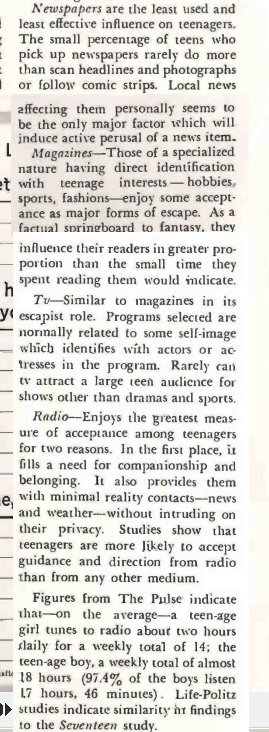Tuesday, September 27, 2016
Why did these unrelated events ..... Oh. Not unrelated.
After finding the American Radio History website a few days ago, I've been cheerfully browsing through this immense library. It has publications from 1900 to the present, covering all aspects of electronics and radio and TV. Unlike Googlebooks, it doesn't stop when Steamboat Willie says to stop.
Decided to use this library to answer a question that has been bugging me for a long time.
Around 1961 I picked up a taste for classical music from my father. Everyone must have known that I was a classical fan. My uncle worked for a big KC station, and when the station decided to give up on classics, he brought home hundreds of their records and let me have a good-sized pile of them. One of our neighbors managed the local small AM station, and when the station decided to give up on classics, he brought home hundreds of their records and let me have a good-sized pile of them.
Why did two unrelated stations make the same decision at the same time? Both decided that classical was finished, never to return.
In modern times it would be a corporate decision by Clear Channel. No further explanation needed. In modern times everything is a total monopoly. Not the case in 1961.
Another big change happened at the same time. Radio suddenly gave up on drama and comedy.
I had always attributed the latter change to the triumph of TV, but when I think about what replaced both classical and drama, the answer becomes blindingly clear.
It's verified by this article in a 1961 trade journal.....
 Rock-n-roll. The Teen Market. Radio gave up adults. As a teen with elderly tastes, I wasn't part of The Teen Market, so I was left behind along with the adults. BUT: I was lucky enough to have friends and relatives in radio, so I ended up with a fine 'consolation prize'. A long-lasting gift.
Rock-n-roll. The Teen Market. Radio gave up adults. As a teen with elderly tastes, I wasn't part of The Teen Market, so I was left behind along with the adults. BUT: I was lucky enough to have friends and relatives in radio, so I ended up with a fine 'consolation prize'. A long-lasting gift.
 Rock-n-roll. The Teen Market. Radio gave up adults. As a teen with elderly tastes, I wasn't part of The Teen Market, so I was left behind along with the adults. BUT: I was lucky enough to have friends and relatives in radio, so I ended up with a fine 'consolation prize'. A long-lasting gift.
Rock-n-roll. The Teen Market. Radio gave up adults. As a teen with elderly tastes, I wasn't part of The Teen Market, so I was left behind along with the adults. BUT: I was lucky enough to have friends and relatives in radio, so I ended up with a fine 'consolation prize'. A long-lasting gift.
Labels: Emersonian justice
